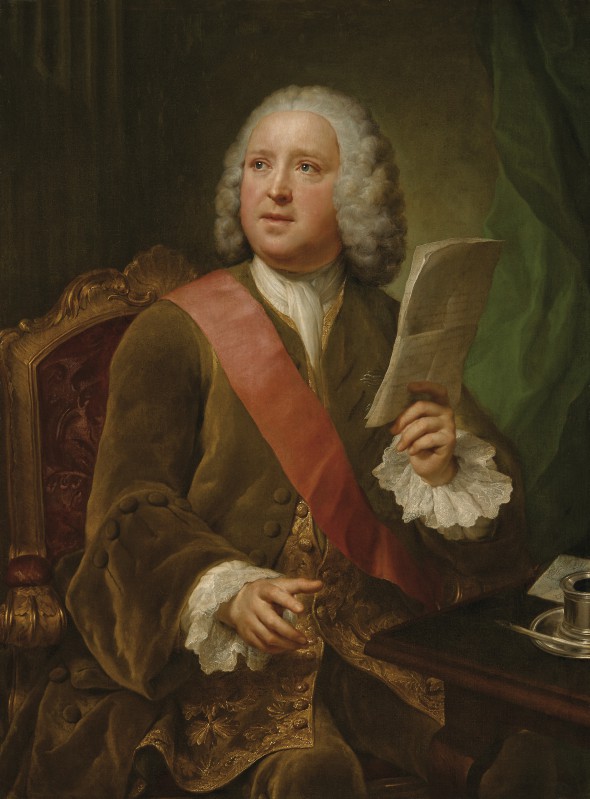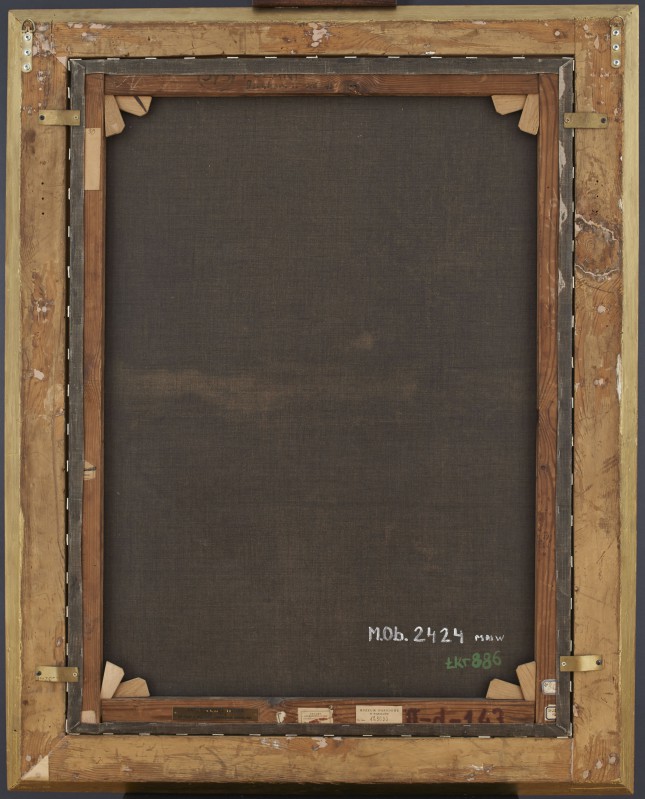Sir Charles Hanbury Williams
- Date
- c. 1751
- Object type
- painting
- Technique
- oil
- Material
- canvas
- Dimensions
- 110,2 x 82,2 cm
- Acquisition date
- 1782
- Location
- The Palace on the Isle - Picture Gallery, ground floor
- Marks and inscriptions
- fragment of an inscription A M.../ Mon.../ Chevalie.../ à / L... on a piece of paper lying behind the inkwell
- Place of Origin
- Germany (Europe)
- Owner
- The Royal Łazienki
- Museum number
- ŁKr 886
The portrait of Sir Charles Hanbury Williams by Mengs was one of the most highly-valued paintings in the Stanisław August collection—in the catalogues of the king’s collection the price 600 ducats was given. The king had a special, personal affection for the painting, not only because of its artistic quality, but, above all, because of the person it portrayed. Sir Charles (1708–59), writer, poet and satirist, English envoy to Dresden, Berlin and St Petersburg, was protector and friend to the young Stanisław Antoni Poniatowski. They met in Berlin in July 1750, and Williams became the mentor and guide for the then teenage Stanisław who was just entering into high society. In 1751 the future king of Poland was Williams’ guest in Dresden, where he most probably had the opportunity to see the almost completed portrait of his mentor and friend in Anton Raphael Mengs’ study. The painting must have made a huge impression on Stanisław, because almost exactly 30 years later, in 1781, he asked the Polish envoy in Rome, Franciszek Bukaty, to find it and buy it—as he expected, from Williams’ heirs. It turned out that the portrait was in the possession of Richard Rigby, a friend of Williams’, who in 1754 had also struck up an acquaintance with the young Poniatowski, and due to his former attachment, agreed to give the painting as a gift to the Polish King. Stanisław August reciprocated by sending Rigby a portrait of himself … . The portrait of Williams reached Warsaw in 1782. ... . [See D. Juszczak, H. Małachowicz, The Stanisław August Collection of Paintings at the Royal Łazienki. Catalogue, Royal Łazienki Museum, Warsaw 2016, no. 72, pp. 271–273.]



